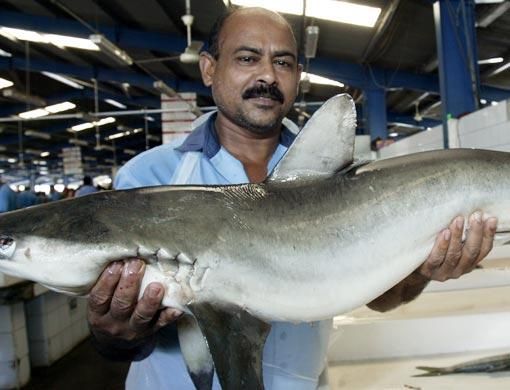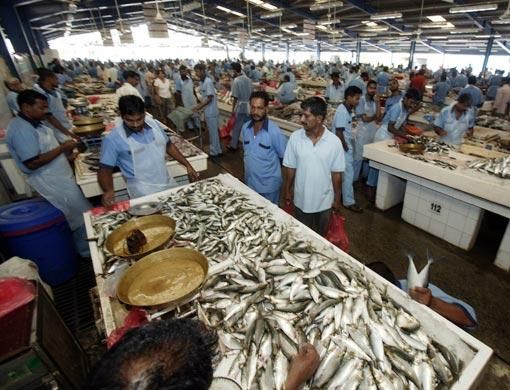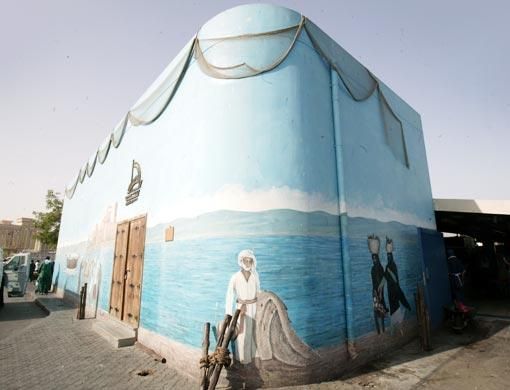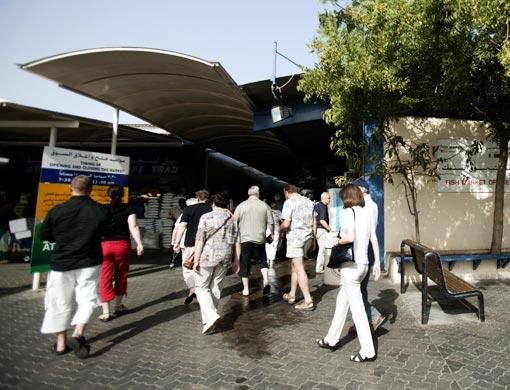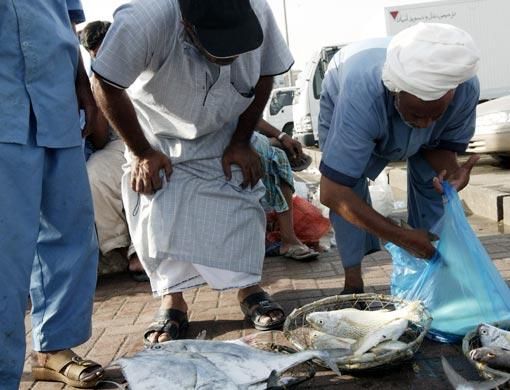Dubai: Deira's peaceful Corniche is a great place to relax. However, relaxing is not something on the mind of fish traders, who sell their fresh catch just metres away in the hustle and bustle of the busy market.
Hundreds of traders sell thousands of fish, including red mullet, milk fish, black pomfret, squid, mackerel and sardines.
Huge wheelbarrows of fresh fish can be seen being wheeled around the market, for expectant buyers who bargain for the price by weight.
The smell is not for the faint-hearted, however, and the market should not be visited in a new pair of shoes.
Although there is an air-conditioning system in place, it is deliberately switched off because the constant flow of air dries out and spoils the fish.
If dried fish is something you are after though, there is a wealth of sun-dried fish available just adjacent to the fresh fish section.
Fish are caught in seas as far away as Spain and Taiwan, and there is a wide range of locally caught seafood from neighbouring Oman and Umm Al Quwain.
Traders have an early start, with deliveries and the market set up at 5am. They work in the smelly heat until 1pm, then reopen for the evening session that takes place from 5 to 11pm.
Long hours are a normal thing for Hamza Paleth, an Indian who has been working at the market every day of the week for the past four years. Hopefully, he says, all the fish will be sold in a day's trading.
Trader Rashid Qisi, also from India, shows off his selection of beltfish, which are also known as largehead hairtail fish. The species can grow up to two metres, are found in the Indian Ocean and are traditionally eaten raw in Japan as Sashimi.
The present fish market is located on Al Khaleej Road near the Deira Corniche close to the Shindagha Tunnel. It opened in August 1988 as a temporary market when the original market was demolished.
Fishing has been a pivotal business for Dubai and the UAE for centuries, providing a valuable source of food for the Emirati population.
A trap system was used to guide fish into underwater nets, which were then collected at low tide.
Nets weighed down with stones were also cast in shallow water, to trap shoals of unsuspecting smaller fish.
The Emirates has about 600km of coastline, making fishing one of the most prosperous businesses and a vital source of nutrition for generations.
Today, fishing is a popular sport among residents and tourists alike, and there are many opportunities to take part.
While the atmosphere at the fish market might be busy, traders say business has slowed down considerably in recent months.
Alkabeer Muthumuthu, 32, also an Indian trader, said: "Parking facilities here are very bad, so business is going badly. People are coming here and not finding parking, so they do not come in to buy fish. People also park in the car park and don't come into the market. They go to nearby restaurants for the evening, sometimes leaving the cars overnight. Friday and Saturday are particularly bad for parking."
The car park adjoining the fish market is public. This problem was highlighted by Gulf News in February 2007.
The market also boasts a fresh meat section and a wide range of fruit and vegetables is available, all under the same roof.


